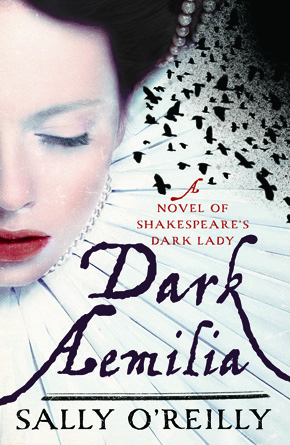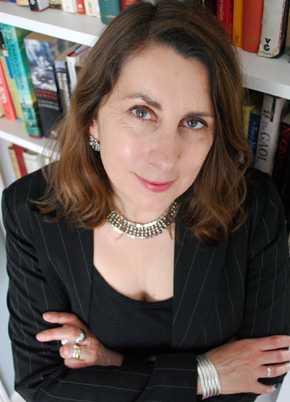The mindful writer
by Sally O'Reilly
“Absorbing, satisfying fiction.” Washington Post
So you want to be a writer? According to popular mythology, all you need to do is hole up for a weekend or three, drink copious amounts of coffee and/or smoke a lot of cigarettes and put pen to paper. Words of genius will instantly pour out of you. After that comes The Auction, which will make you rich and The Film Deal, which will make you famous. For impatient binge writers, there is plenty of advice out there, from writing a novel in a month (NaNoWriMo) to producing a book in a weekend.
But what about the pain and pleasure of writing itself? Or the pure love of invention? And the way that writing, like meditation, can help you find your personal equilibrium? Writing is in many ways the ultimate mindful occupation and recording your thoughts regularly can help transform your life. You don’t have to be a Buddhist to reap the rewards. The essential point is that each day you check in with your work, and each day you learn something from it.
Writers have been talking about this for decades, and yet somehow the idea of the lone author instantaneously producing work of undiluted genius is an enduring fantasy. Such outpourings do happen, but only after years of apprenticeship to the craft and discipline of writing.
As Virginia Woolf wrote in her diary: “What one wants for writing is habit… It loosens the ligaments. Never mind the misses and the stumbles. Going at such a pace as I do must make the most direct and instant shots at my object, and thus have to lay hands on words, choose them and shoot them with no more pause than is needed to put my pen in the ink. I believe that during the past year I can trace some increase of ease in my professional writing which I attribute to my casual half hours after tea.”
The trouble with our own “casual half hours after tea” is that such practice can seem more like limbering up for a marathon we will never be asked to run than an activity which is valuable for its own sake. The besetting issue for most writers is that their work is only validated by publication – or so it seems. Until then, writing is a mere hobby, and we are struggling amateurs.
Yet there is so much to enjoy. Each stage has its own rewards, even the supposedly preparatory and relatively uncreative period of research, as the novelist Marina Warner has observed – she finds the smell of book dust inspiring and libraries give her a sense of escape.
There is something restorative and exciting about tapping into your unconscious, developing ideas that are rooted in your obsessions or memories.”
In fact, it’s my experience that research is essential to the creative process, allowing ideas to connect with our imagination and find their own strange logic. We don’t have great canvases to splatter with oil paint, or the thrill of mixing colours, but we do have the tactile reality of paper, books and pens, the fascination of field trips and research interviews and the excitement of serendipitous discovery: the way that a single object can invoke a whole world. Writing is a physical activity as well as a mental one, and every day can be a discovery.
There is also something restorative and exciting about tapping into your unconscious, developing ideas that are rooted in your obsessions or memories. All artists work with both the external world and their internal consciousness, and this is one of elements of the creative process that is difficult to describe – my view is that each writer will find their own way of combining these elements to a lesser or greater degree, and they will find these solutions via a process of trial and error and experimentation. No agent or editor can tell you how this works, and it’s an innately private and personal matter in the first instance.
Notebooks and daily writing help the process along. Author and writing guru Julia Cameron advocates writing ‘morning pages’ first thing each day, and many writers make this part of their practice. One such writer is Hilary Mantel: “At this hour one writes easily, without strain or effort,” she writes. “There is no sense of the words being graven in stone, or that sense of making a commitment that can be so paralysing. Sometimes what is written at this hour isn’t used, but is invariably free from constraint.” (The Agony and the Ego, Clare Boylan, 1993)
This communing with your inner self isn’t necessarily spiritual, but has some similarity with yoga practice or morning prayer – it’s a way of getting beyond ‘dailyness’ and finding patterns and symbols that have meaning. And this meaning may be personal in the first instance, but can ultimately be communicated to other people. Creative writers often undervalue this part of the process, and there can be a sense of pressure to rush towards completion.
But this is shortsighted – and prevents us from working to our fullest potential. We can learn from the process of visual artists, who see process as an integral part of their daily life as well as a component of each finished work. Grayson Perry describes his creative process as his “mental shed” which gives him a sense of security and a safe place from which to look out of a window “onto the world”.
My preferred writing space is a moving train, with windows looking out onto a passing world. This makes me feel as if my writing is moving too, and what I write is delible and malleable, like Hilary Mantel’s dawn drafts. This creative sketching is a way of finding a pattern without imposing one, of evolving a loose logic that determines its own shapes and connections.
Raw experience, random impressions, childhood memory, all of this can be forgotten and revisited, twisted and repurposed. At its best, this process can take us into the ‘zone’ in which we transcend the limitations of self and find an equilibrium that allows our creative imagination to flourish, disappearing into our own ideas. Rather than rushing this period of our writing process, surely we should cherish it, and learn how to nurture our developing ideas. Not only does this benefit our finished work, it is a life-enhancing process in itself.
 Sally O’Reilly has a PhD in Creative Writing from Brunel University, London, and is a lecturer in Creative Writing at the Open University. Her historical novel Dark Aemilia, a reimagining of the life of Shakespeare’s muse and one true love, is now published in paperback and eBook by Myriad editions. She is also the author of the bestselling guide How to be a Writer and (as Sam O’Reilly) two previous novels, The Best Possible Taste and You Spin Me Round. She lives with her family in Brighton.
Sally O’Reilly has a PhD in Creative Writing from Brunel University, London, and is a lecturer in Creative Writing at the Open University. Her historical novel Dark Aemilia, a reimagining of the life of Shakespeare’s muse and one true love, is now published in paperback and eBook by Myriad editions. She is also the author of the bestselling guide How to be a Writer and (as Sam O’Reilly) two previous novels, The Best Possible Taste and You Spin Me Round. She lives with her family in Brighton.
Read more.
how2beawriter.blogspot.co.uk
Author events
 Thursday 30 April
Thursday 30 April
Dark Aemilia Brighton launch
Waterstones, 71–74 North Street, Brighton BN1 1ZA
7.30 pm
Free
Reading, discussion and book signing with Sally O’Reilly.
More info
Thursday 21 May
Historical Fiction Now at the Brighton Fringe Festival
Latest Music Bar, 14–17 Manchester Street, Brighton BN2 1TF
7 pm
£7/£5 concessions
Sally O’Reilly and Susanna Jones talk about why they started writing historical fiction and their publishing experiences in a panel discussion with Candida Lacey, publisher and managing director of Myriad Editions and literary agent Nelle Andrew from Peters, Fraser & Dunlop. Followed by lucky dip pitching session: bring a one-page book idea/synopsis for possible feedback.
More info

